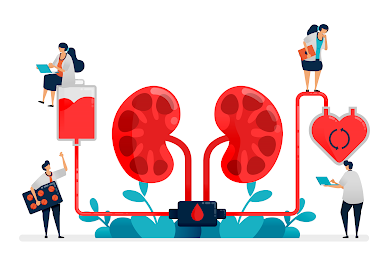Organ Donation
Organ donation means surgically removing a tissue or organ from one individual and placing it in another. Since the first successful one in 1954, organ donation has saved many people's lives and given a glimmer of hope to many others waiting for transplants. Despite this, the practice remains highly controversial not only in Canada but across the globe. The number of people that require organ donation continues to increase since very few people are willing to donate. This has created a scarcity of organs, with about two hundred and fifty people in Canada dying yearly on the waiting list for organ donation (Government of Canada, 2023). In despair, many individuals on organ donation lists are being tempted to go against the law and offer large amounts of money in exchange for prioritization for donations. Greedy medical practitioners may provide substandard care to patients so that they die and have their organs donated. This has brought up many ethical concerns about the whole idea of organ donations particularly at the end of life, with families of loved ones no longer trusting medical practitioners. Here is a case scenario by Valdes et al. (2002) from the National Library of Medicine (129-132):
A man aged thirty-one was
admitted into a hospital through the emergency unit after being hit by a car.
The man had a severe closed-head injury. Upon arrival, his pupils were unequal
and sluggish, and he was decerebrate to noxious stimuli. He had been intubated
in the field and was given ventilator assistance, and hyperventilation started
so there would be minimal intracerebral swelling. The doctors started
hemodynamic support for tachycardia and low blood pressure on admission. A CT
scan revealed that the patient had a subdural hematoma with effacement and right-to-left
right ventricle shift. A neurosurgeon consulted during the CT scan found that
surgery would have little benefit for the patient. The surgeon advised that
hyperventilation be continued while the patient was being observed so that the
extent and irreversibility of the injury could be determined. The patient's
family was informed about their relative, and they went to see the patient, who
was now in the trauma service intensive care unit.
After about twenty-four
hours in the hospital, the patient saw short and sudden tachycardic and
hypertensive episodes, with moderate hypotension following. Upon a neurological
review, the patient showed a Glasgow Coma Scale of three, no spontaneous
respirations, absent cough reflex and gag, dilated and fixed pupils, and no
purposeful movements to the noxious stimuli. The patient's brain was reportedly
dead, and an organ recovery coordinator who had arrived at the hospital
evaluated the patient and found that he was a suitable candidate for donation. About
ten hours later, the patient's family was informed of their relative's death
and that he was suitable for organ donation. This extremely angered the family
and prompted negative thoughts concerning the donation. With this reaction, a
member of the OPO staff trained in grief counseling and requesting organ
donations was called to talk to the family. The staff helped the family through
the grief and finally told them about the donating options. After many hours of
talking, the family gave in and agreed to donate all tissues and organs. The
patient’s liver was successfully transplanted to another person.
From this case scenario,
it is clear that the patient had not consented to his body organs being
donated. Also, the doctors likely did not give the patient full attention
knowing they could potentially donate his organs. Thirdly, the killing of the
patient by organ donation will rule out his probability of ever recovering
again. This essay argues that end-of-life organ donation should be stopped
because of the ethical concerns of giving substandard treatment to donating patients,
killing by organ donation in hospitals, and infringement of patient autonomy.
My point of view is that
all humans are equal regardless of their race, ethnicity, or economic ability.
Because of this, they should be allowed to decide if their bodies will be used
in donations of organs or not. In the case scenario, the man was unconscious
when admitted. He did not consent to donate his organs. Even though his family
was consulted, the decision of his family is not his. Also, consenting to
donation before death means accepting possible substandard care at the end of
life so that your organs can be donated.
In Christianity, organ
donation is more of an individual decision. Many Christian groups do not hold
explicit views regarding organ donation (Chonko, 2012). Nonetheless, the bible
and society state that no human being should take the life of another. Canadian
law also prohibits one from taking the life of another. It is considered a
capital offense, and anyone that kills another is sentenced to several years in
prison, depending on the degree of the murder. Accordingly, no medical
practitioner should provide substandard care to an individual just to have them
donate their organs. But because of the difficulty in determining if this is
done or if death happened from a patient's complications, the whole practice of
end-of-life organ donation must be stopped.
Virtue and deontology are
the two different ethical theories that were selected. The virtue ethical
theory holds that a person should be judged based on character rather than
action (Chonko, 2012). Under this theory, if a doctor gives substandard care to
a patient so that their organs can be donated, the doctor is still considered
good because that was only a single action. This theory encourages medical
practitioners to indulge in unethical medical practices because these will not
define them. On the other hand, the deontology theory holds that people should
stick to their duties and obligations when making decisions, and ethics is in
play (Chonko, 2012). This theory implies that a doctor is not supposed to give
substandard care to a potentially donating patient at the end of life as his
sole duty to the patient is to restore their health. Under this theory, ethics
in the medical industry is instilled as all medical practitioners play their
designed roles on their patients.
If end-of-life organ
donations are conducted under the deontology theory, they will likely be done
ethically. However, this is almost impossible because human nature always inclines
them to perform according to the virtue ethical theory. Human is to error, and
no one is perfect. When human beings perform mistakes, they are not defined by
the single mistake but by their whole character. Because of this, it is common
for an individual to do something bad occasionally. When this is put in the
perspective of medical practitioners, it will not be surprising to see them
leave one or two patients to die so that they can donate their organs and get
paid by immoral tycoons. Because of the nature of their work, it is very
unlikely that these doctors will be discovered, and the process will continue.
Accordingly, the only way that this can be tamed is by banning organ donation
practice at the end of life.
Various ethical principles
are conflicted in end-of-life organ donation. The first is beneficence. This
principle states that a decision-maker should do what they deem right and good
(Chonko, 2012, p.1). It is related to the utility principle, where people are
advised to generate as much good as possible. People are advised to take
actions that will achieve the greatest amount of good for people (Grunschlag,
2021, p.10). If this is applied in end-of-life organ donation, it encourages allowing
a patient to die so that many people can benefit from his body organs. This is
because over thirty individuals can benefit from the organs of one patient,
which will mean thirty lives have been saved at the expense of one.
The principle of respect
for autonomy requires people to be allowed as much as possible to decide what
applies to their lives (Chonko, 2012, p.1). This principle was not respected in
the case scenario, as the victim was not allowed to decide whether to donate
his organs. Another ethical principle that is violated by end-of-life organ
donation is justice. In the principle of justice, decision-makers are
encouraged to focus on actions that are fair to the individuals involved
(Chonko, 2012, p.1; Grunschlag, 2021, p.11). If this is followed, individuals
will not have their organs donated without consent, like in the case scenario.
Doctors will also be careful not to allow patients to die as these actions will
be unjust to them. In the case scenario, the principle of respect for autonomy
and that of justice asserts that organ donation should not have been done.
Nurses are involved in
organ donations because they are the center of all operations in a hospital,
particularly in the ICU and the theater where these practices are done. The CNA
requires that nurses in Canada provide ethical, competent, compassionate, and
safe care to clients (CAN, 2017, p.1). The CNO, on the other hand, requires
that nurses respect the dignity of their clients and provide competent and safe
care (CNO, 2022, p.4). If clients' dignity is to be respected, it implies
respecting their autonomy. Donating the organs of a client without his consent
implies disrespect which is against the standards of the CNO. Because these
standards are in place but are not being followed, potentially resulting in the
loss of lives, organ donation must be banned. Also, all Canadian citizens have
a right to life, and the Constitution does not allow killing one to save
others.
Organ donation without
the donor's consent infringes the principles of justice and respect for
autonomy. It also goes against the ethical theory of deontology, the standards
of CNA and CNO, and the human right to life. Talking to the donor's family
members after he is incapacitated does not justify such donations, as the
respect for the donor's autonomy is still not adhered to. The best way organ
donations can be conducted on an individual is while they are still alive since
consenting to donations before death may jeopardize the services one will get. Because
of this, all donations of body parts after death should be banned in Canada.
For references please contact at info@writers24hr.com




No comments:
Post a Comment